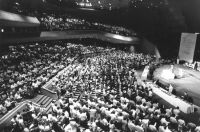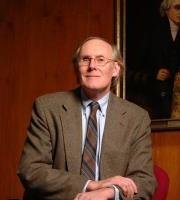I doubt you'll ever get a more British post topic than this one. How do you tell if it's great weather in the UK? Because you'll hear a deafening silence on the topic.
This morning I cycled past a dog-walker who hailed another lady, in a broad Brummie accent: 'Innit a crackin summer?' My initial thought was slight shock: How un-British!
Not that she spoke to a relative stranger - somehow, dog-walkers are one of the rare groups of people who get away with that, and a local Brummie would be more likely to speak to a neighbour. Nor did I disagree with her assessment of the weather: I have been praising God each morning as I cycle in to the office, through beautiful weather - temperatures just right even when cloudy, and a lovely warm breeze.
My surprise was that this lady had made an appreciative comment about the weather! As a good English lady, she should have complained. Ignoring the fact that God has given us one of the most temperate climates in the world, she should have complained that it was too hot, or the wind too strong, or that the sky wasn't clear of clouds. She should have said that it would never last and was bound to rain later, just when she would have her washing out. English social convention dictates it!
1) Never speak to a stranger;
2) If you break rule 1, you must make a general complaint with which the person addressed may agree. Traditionally, you will find the weather a useful topic. Failing this, see rule 1.
I swung my bike into the park with a grin, and in my frequent un-English way, broke into song, praising God. I was thankful that there is still some thankfulness left in England, enough to burst out of convention. For a while now, I have made it something of a personal campaign to undermine the social acceptability of the national spirit of thanklessness. I consider it the joyful duty of the Christian, since we have had our eyes opened to see that the universe is playing out in divine comedy - despite the very reality of sin and death distorting and maiming God's good world, we are living between two resurrections - Christ's, and therefore ours.
Therefore we wage war on this attitude, in the ways in which it appears in each of our cultures and worldviews:
For although they knew God, they did not honour him as God or give thanks to him, but they became futile in their thinking, and their foolish hearts were darkened.
[
Rom 1] And if I'm honest, part of the reason I wage war on the attitude outside me, is that I need to constantly remind my own heart that
I
don't believe that all is futile and dark. If you train yourself in thankfulness, you will find trust a lot more natural through the dark times.
PS Thankfulness in mind and all, since I mention the weather, if you're in the UK, please do pray that God would have mercy by sending rain for our farming community. If they don't have rain soon, they'll have no hay for the animals over the winter.























